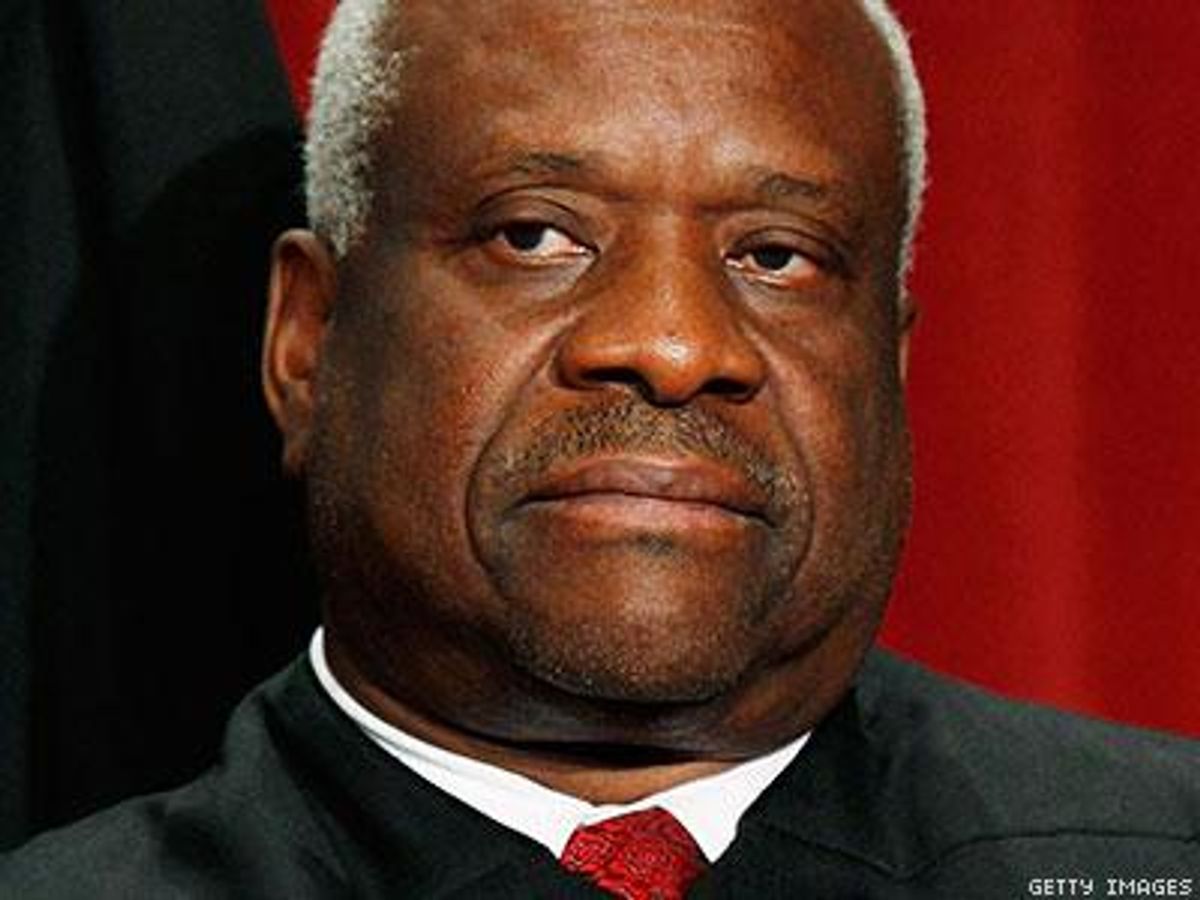In a rare statement issued within a ruling on an unrelated issue, Supreme Court Justice Clarence Thomas indicated that he's not pleased with the high court's recent refusal to hear marriage equality cases out of Utah, Oklahoma, Virginia, and Wisconsin.
The notoriously quiet associate Supreme Court justice -- who last year broke a seven-year silence in the federal courtroom when he cracked a joke about his alma mater -- was joined by stalwart conservative Justice Antonin Scalia in his statement published Friday. The statement was, ostensibly, regarding the court's denial of a stay in a case where lower courts had struck down an Arizona law that sought to deny bail to undocumented immigrants in detention.
Thomas wrote that he agreed with the court's decision to deny a stay, but only because he did not think at least four Supreme Court Justices would be willing to take up the case, a process known as writ of certiorari. Unless four or more justices agree to grant "cert," the court declines to hear the case, and the latest judgment of the lower court becomes final.
"That is unfortunate," Thomas lamented.
Noting "a strong presumption in favor of granting writs of certiorari to review decisions of lower courts holding federal statutes unconstitutional," Thomas argued that even when lower courts have unanimously ruled against a state law (as was the case in marriage litigation out of Virginia, Utah, Wisconsin, and Oklahoma), the court should hold a full hearing.
"Indeed, we often review decisions striking down state laws, even in the absence of a disagreement among lower courts," he noted.
"But for reasons that escape me, we have not done so with any consistency, especially in recent months," Thomas continued, citing those marriage cases to which the court denied cert last month and the subsequent denial of state's requests for stays on rulings striking down marriage bans in Alaska and Idaho.
Turning his attention back to the Arizona immigration case at hand, Thomas seemed to imply that his colleagues had committed a dereliction of duty by refusing to review the case.
"At the very least, we owe the people of Arizona the respect of our review before we let stand a decision facially invalidating a state constitutional amendment," Thomas wrote.
He went on to write that he "hopes" his prediction that the court would deny cert to the Arizona case is erroneous, but that "our recent practice, however, gives me little reason to be optimistic."
While the tone of Thomas's statement makes clear his frustration with the court's recent actions -- which have effectively allowed or required 10 states to embrace marriage equality in the past month -- his criticism notably never mentions the word marriage. But by citing the recent decisions regarding marriage equality and critiquing the court's growing pattern of letting lower court rulings stand that invalidate voter-approved state constitutional amendments, it's clear that Thomas disagrees with at least the approach the court has adopted when it comes to overturning state marriage bans.


















































































